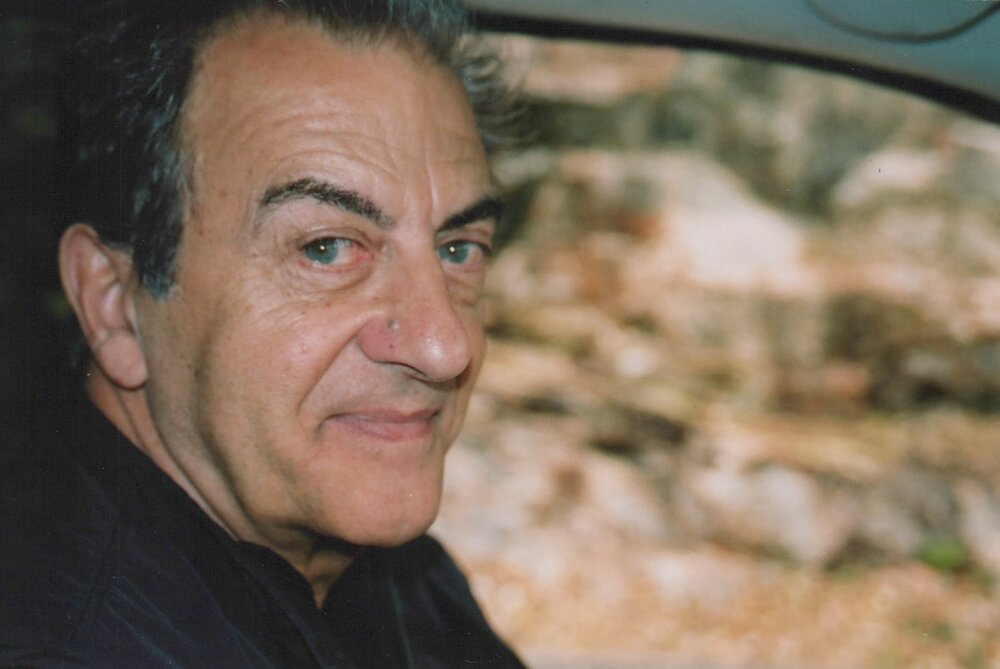
Obituary of Elbert Lennis Deveaux
Elbert "Bert" Deveaux, May 12, 1936 – December 23, 2024
Bert Deveaux’s life was one of transformation, resilience, and a relentless commitment to social justice. Born in the Acadian fishing community of Chéticamp, Nova Scotia, his journey from a humble upbringing to becoming a grassroots organizer, investigative journalist, and social activist unfolded against the backdrop of profound social changes in Canada.
Originally planning to join the priesthood, Bert’s perspective shifted while studying at St. Francis Xavier University, where he was exposed to new ideas and social realities. Soon, he abandoned engineering for sociology. Having by then met his first wife, Kaye McCormack, and eager to make a difference in the world, Bert left StFX without a degree.
Bert embarked on a career as a social worker, but was quickly disillusioned. While working for Child Protection Services and at the Dorchester Penitentiary, he witnessed firsthand the abuse and neglect that plagued these systems. After the birth of their first child, Bert and Kaye took teaching jobs in Sandy Lake First Nation in Northern Ontario. Though teaching was not his calling, the experience opened his eyes to the challenges faced by Indigenous communities, inspiring him to focus on ways to uplift and support them.
This passion took shape when he became a community development officer with the Manitoba government, working on the Oak River Reserve. Bert’s approach was radical for its time; he focused not on imposing government agendas, but on listening to people and helping them achieve their goals. But his efforts clashed with bureaucratic norms, and by 1968, the government withdrew support from the program.
Undeterred, Bert joined the Company of Young Canadians and spearheaded projects in industrial Cape Breton. The organization’s anti-establishment ethos resonated with him, but tensions soon arose between the young volunteers, who sought more autonomy, and the federal government, which envisioned the program as a top-down community service initiative.
In 1970, Bert and his family moved to New Brunswick, where he continued his advocacy work with the Rural Development Branch, helping groups like woodcutters and farmers protect their livelihoods in the face of corporate encroachment. His methods were bold and sometimes risky.
On one occasion, he drove to an isolated logging camp, convinced the English-speaking company man that the camp had been selected for an award, then proceeded to interview the woodcutters in French about the poor safety and living conditions.
Bert wanted to empower workers. The New Brunswick government did not, and in 1976 it shut down the rural community development program. This only deepened Bert’s resolve. Later that year, he co-founded The Plain Dealer, an alternative newspaper that covered issues important to communities and workers. At a time when much of the province’s media was controlled by the Irving family, The Plain Dealer quickly became a powerful voice for exposing corruption and championing the rights of ordinary people. Bert’s reputation as a fearless critic of powerful institutions was firmly established.
Later, Bert joined CBC Halifax as a researcher and reporter for The MacIntyre File, where he continued his investigative work, exposing political corruption and the environmental harm caused by unchecked corporations.
In 1980, Bert moved to Toronto with Suzanne Babin, his new partner and fellow journalist at CBC, and three of his children. He joined CBC Radio’s investigative unit for Sunday Morning, where his most impactful investigation—“The Poison Mist”—brought national attention to the health harms of New Brunswick’s controversial spruce budworm spray program. Bert’s reporting uncovered alarming links between toxic pesticides and a rise in birth defects, rare cancers in both children and adults, and Reye’s syndrome, ultimately prompting the government to appoint a task force.
In the late 1980s, Bert and Suzanne founded Deveaux Babin Productions, producing videos for labour unions and the Ontario Workers Health and Safety Centre. They also created award-winning CBC documentaries, such as Not My Home (an unflinching look at life in nursing homes) and They Speak in Whispers (which told the stories of children with cancers caused by industrial contamination and pollution). These and other works underscored Bert’s belief in the power of personal stories to raise awareness and drive systemic change.
In 2000, Hollywood called, and Bert and Suzanne answered. With their young daughter, Holly, in tow, they moved to Los Angeles, where they produced two seasons of HouseCalls for the Slice/Lifetime Network, breaking new ground at the start of the reality TV wave. When the series ran its course, the family returned to Toronto, where Bert’s focus once again turned to social justice.
Amid the 2008 financial crisis, Bert directed Poor No More, a documentary that examined Canada’s fragile social safety net. Using a comparative analysis of labour conditions in Ireland and Sweden, the film exposed the systemic failures that allowed poverty to persist. It called for collective action to address the root causes of inequality, powerfully arguing that poverty was not an unfortunate accident, but a deliberate outcome of policies that prioritized corporate interests over the well-being of people. The documentary was widely praised by anti-poverty groups for its bold critique.
Bert’s disdain for political complacency and corporate greed found another outlet in Operation Maple, a digital platform he co-founded with Suzanne. Through satirical videos and incisive commentary, Operation Maple critiqued the Conservative government and big business, exposing the erosion of workers’ rights, jobs, and environmental protections. The platform’s video library remains a testament to Bert’s unwavering commitment to accountability and justice.
In 2016, as his health declined, Bert retired and returned to the province that always felt most like home: Nova Scotia. He settled in Halifax, just a block from his daughter Tynette and her family. Facing numerous health challenges, Bert was always supported and surrounded by love. He was deeply grateful to the team of caregivers who helped him live independently with comfort and dignity. In his final months, Bert moved to a long-term care facility, where his caregivers and children continued to visit him.
On December 23, 2024, Bert passed away peacefully in his sleep.
Bert’s impact on others was immeasurable, but none felt it more than his children. He taught us to question the world, challenge the status quo, and fight injustice. His deep love and belief in us was a constant anchor in a tumultuous world.
In July 2025, we will return to Chéticamp to bury our father’s ashes and celebrate the remarkable life of a man who inspired and challenged us to make the world a better place.
The son of Louise Bourgeois and Auguste Deveaux, Bert is survived by his five children: Jasmine Skye, Tynette Deveaux (Daniel Jollimore and son Luc), Monique Deveaux (Stefan Dolgert and son Beren), Jean-Paul Deveaux (Kathleen McLennan and children Claire and Michael), and Holly Deveaux Babin (Jesse Rath); his brother Marcel Deveaux (Sylvia Crowis Deveaux); and his former wife Suzanne Babin. He was predeceased by his sisters Casilda Deveaux Cohoon and Jeannine Simon.
